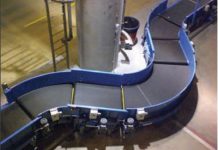
MacLean-Fogg Component Solutions (MFCS), a Detroit-based supplier of original equipment automotive components, has launched the Threadstrong brand of replacement wheel fasteners and an accompanying e-commerce website: www.Threadstrong.us.
Threadstrong aftermarket wheel fasteners are engineered and built in MFCS factories in Michigan and Illinois.
“We are well known as the leading OEM supplier in North America for high performance, decorative wheel fasteners,” says Brad Southwood, vice president of sales and marketing at MFCS. “It’s always been frustrating to us to see the aftermarket flooded with inferior, low-quality and potentially dangerous replacement wheel fasteners of unknown origin. So, we decided to do something about it.”
The brand is launching with a limited number of applications in both stainless steel and black appearance with new applications to be added soon.
“No team is more knowledgeable about how to engineer and manufacture safe and durable wheel fasteners than the MacLean-Fogg team,” says Rob Whitney, president of the MFCS Fastener Division. “We’ve been the leading supplier to many of the world’s largest automakers for over 40 years. We want the aftermarket consumers to know that when they buy a Threadstrong wheel fastener, they can trust it was made in the U.S.A to all of the needed safety specifications.”
Mark Raves, director of wheel fastener engineering at MFCS, says a lot goes into wheel fasteners that the general public doesn’t think about.
“Beyond just obvious considerations like material strength, corrosion resistance, and durability, there is a tremendous amount of engineering and quality control that goes into controlling the friction of the fastener’s load bearing surface against the wheel,” Raves explains. “Too much friction and the wheel fastener will torque down while still being loose against the wheel, creating a potentially unsafe condition. Too little friction and the act of torqueing the nut down can overstretch the stud creating a wheel stud failure.”
For more information, visit here.











